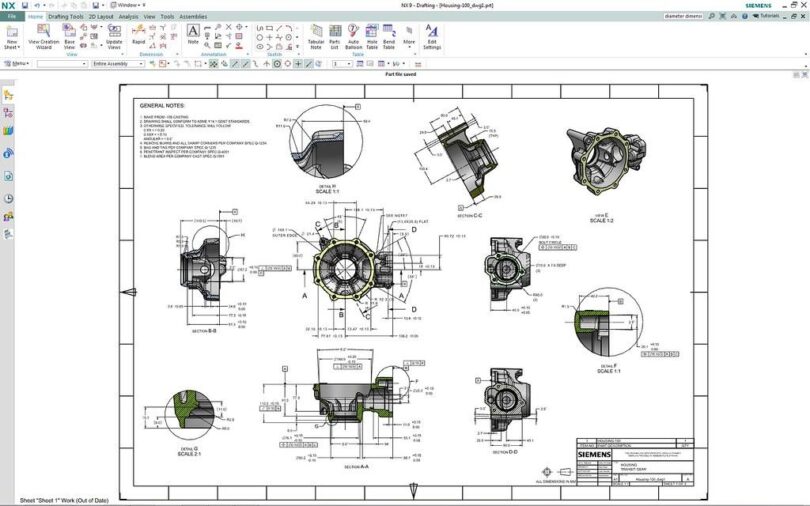The concept of a “will” is often associated with feelings of uncomfortable finality. Drafting a legally binding will isn’t something people often consider doing in life, but it is an inevitable decision that needs to be taken at some point. Thinking ahead and ensuring that your wishes are properly expressed when the time comes is essential. A legally binding will is the best way to make sure what is important to you is taken into account and followed.
1. Definition of a Legally Binding Will
A legally binding will is a written document that outlines the disposition of your possessions or assets that you wish to give away upon your death. This document serves as a guide for the individual who will be administering your estate and ensures that your wishes are carried out. It is an important part of estate planning and preparing for future contingencies.
- State Laws:Many states have requirements in order for a will to be considered legally binding. Double-check with your state to verify your document complies with all applicable laws
- Required Elements: A will typically needs to include the following elements:
- Declarations of the testator’s identity and location;
- A statement that the testator has the capacity to make a will;
- Expressions of the testator’s wishes for the disposition of their estate;
- A nomination of an executor, or a guardian for any minor children;
- The date of signing the will; and
- The signature of the testator, the executor, or witnesses.
- Creating and Signing the Will:Generally, a will must be signed in the presence of two disinterested parties (not beneficiaries of the will) in order to be considered legally binding. In most states, the testator may choose to self-prove the will by signing it in the presence of a notary public. This process aids the executor in proving the validity of the will without having to obtain affidavits from the two witnesses.
Complying with the requirements for a valid legally binding will is essential in order for the document to be carried out. A will is an important part of estate planning and should be drafted in consultation with an estate planning attorney who can provide more specific guidance and advice about the legal requirements. The will should be updated periodically to reflect changes in the testator’s life. Taking the time to properly create and sign a legally binding will will help ensure that the testator’s wishes are fulfilled and the burden is eased on their loved ones.
2. Understanding the Benefits of Drafting a Will
Drafting a will isn’t something people necessarily want to think about, but it is one of the most important things you can do for your family and loved ones. A will is a legally binding document that allows you to determine how your possessions and assets will be distributed after you pass away. Here are a few factors to consider when understanding how a will can benefit your loved ones.
- Your Wishes Are Respected: A will will ensure that your wishes are respected after you pass away by outlining exactly how you want your estate to be handled. Without a legally binding document, the state can be left in limbo as loved ones battle over your possessions and assets.
- You Control How Your Estate Is Distributed: Drafting a will also guarantees that you control how your estate is distributed. You can choose to designate specific people and organizations to receive your assets and possessions.
- You Can Name Minor Guardian: If you have children who are minors then it is important that you appoint a guardian(s) in your will. This ensures that your children continue to be taken care of and loved in the same way you would have done had you stayed alive.
- You Can Appoint an Executor: With a will, you can also appoint someone as the executor of your estate if you don’t feel comfortable naming someone as the guardian. The executor is in charge of carrying out your wishes as specified in the will and making sure the estate is distributed accordingly.
- It Can Help Avoid Conflict: Writing a will helps to avoid family conflict. It removes the burden of having to decide who gets what from your estate off of your loved ones and ensures that anything that needs to be settled will be done so in accordance with your wishes.
Ultimately, having a legally binding will written up is crucial to ensuring that your assets and possessions will be distributed according to your wishes. It will help to avoid family conflict and guarantee that minors are taken care of. Speak to an attorney today about drafting a will for you and your family.
3. Gathering Essential Information
Organizing your thoughts and wishes about essential end-of-life care, property, and finances is a daunting task. But it doesn’t need to be overly complicated. Understanding the importance of the information you need to provide to create a legally binding will is the place to start. Here is where to start.
1. Asset Information:
- Real Estate- List of the properties you own, its estimated value and mortgages that may be tied to it.
- Personal Property- Any items that are of value to you, such as jewelry, artwork, antiques, cars, etc.
- Financial- Bank accounts and other investments you have.
- Insurance- Life insurance policies, annuities or 401Ks.
When it comes to assets and end-of-life decisions, you are also able to assign someone to be an executor to your will, and that individual can be entrusted with the responsibility of distributing your assets accordingly.
2. Beneficiary Information
- These are the people who will inherit your assets when you pass.
- You are able to divide assets between multiple people.
- You can also consider creating a trust and naming a trustee to manage the assets.
Lastly, be sure to list your beneficiaries accurately, as this will be key to distributing the assets you worked so hard to accumulate.
3. End-of-Life Decisions
- Your medical wishes- If you pass away and are unable to state your wishes, make sure you specify your desired medical care in writing.
- Estate planning- It is important to keep the beneficiaries of your estate up to date to ensure that your wishes will be followed.
- Funerary instructions- If you’d like your funeral to be done in a certain way, make certain to list these details in your will.
Assembling all of the necessary information for your legally binding will is a critical step in ensuring that your wishes will be properly protected. Be sure to complete the necessary homework and get it done right the first time.
4. Compiling Necessary Documents
As you are drafting your legally binding will, there are several important documents you will need to compile. While you cannot put the documents in your will, it is beneficial to have easy access to them in order to ensure that your legacy is passed on with the utmost clarity and efficiency.
- Financial Records – Collect a record of all your financial accounts, investments, and debts.
- Medical Records – Have copies of all medical documents, insurance information, and medical directives on hand.
- Property Records - Include documents pertaining to all real estate you own, as well as any vehicles, boats, and recreational assets.
- Tax Forms – Copy your most recent tax returns and other relevant tax documents.
- Advanced Directive – Upload a Directive to Physicians, Living Will, and Durable Power of Attorney.
- Insurance Policy Documents – Keep copies of all insurance policies, such as life, health, annuity, and disability.
- Estate-Planning Documents - Include a copy of any other estate-planning documents, such as trusts, materials from professional advisors, inventory of charitable donations, and marriage certificates.
- Funeral Arrangements – Have your wishes for final arrangements documented.
Organizing the above documents and keeping them in a central location can greatly facilitate the process of executing your will. This type of organization and forward thinking will help to ensure that your legacy is passed on as you intended.
5. Selecting an Executor
Choosing the Right Person
Once you have organized the details of your will, it is time to choose an executor. This is an important decision, as the individual you select will bear the legal and financial responsibility of carrying out your wishes. Here are five tips to help you make the right choice:
- Select someone trustworthy – Consider the person’s character, values, and ability to follow through on their commitments. You want someone who won’t be swayed by emotion or outside influences.
- Pick an organized and detail-oriented individual – Your executor will need to be able to manage complex paperwork and illustrate a strong level of accuracy and attention to detail.
- Choose a local option - Selecting a family member or friend who lives nearby and can be easily accessed is an ideal solution for an executor.
- Pick a younger option – Selecting a younger individual as your executor is beneficial, as they will likely outlive you and be better suited for managing your affairs.
- Consider a removable executor – It is useful to have a backup plan in case your primary executor is unable to serve or for any other unforeseen circumstances.
A qualified attorney or financial advisor can assist you with , as can family members and close friends. Take time to weigh your options and think carefully before you make your final decision.
6. Writing and Signing the Will
After you’ve identified all possible assets, arrangements for after death and people to be appointed in the will, you’ll be ready to start drafting your will. Depending on the complexity of the will, this step can be done on your own or with the help of a lawyer. If there are any points that bring uncertainty or require professional advice, it’s best to rely on a lawyer. Make sure that you follow all the legal requirements and use clear legal language in the will.
Ensure Legality of the Will
- Retain legal assistance from an attorney.
- Follow all the legal requirements for writing a will.
- State the legal name of everyone involved in the will.
- Ensure that you are in the right mental condition.
- Include the date and your full legal name.
- Include a set of self-proving affidavits.
Once you have drafted the will and everything is in the right order, it’s time to sign it in front of witnesses. You should pick two people who have no connection to the contents of the will—one should be a relative and one should be impartial—to act as your witnesses. And depending on the provision of local laws, it is likely that you will need to have your signature and your witnesses’ signatures verified by a notary public.
Signing Your Will
- Gather two witnesses—one relative and one impartial.
- Sign your will in their presence.
- Have the witnesses sign your will as well.
- Have the signatures notarized if local regulations require it.
- Keep the original will in a secure place.
- Make any revisions or additions to the will.
Once your will is signed and notarized, it is legally binding. Make sure to keep the original in a secure location, and consider making a copy of it and giving it to your appointed executor. If cigarettes, candy or other non-cash items are a part of your estate, include a list of those items so that your executor knows who in your family should receive them.
7. Potential Issues During the Process
Re-Writing: Although re-writing of a will is as common as writing one, it is something that needs to be done carefully and thoughtfully. It can be difficult to re-write a will without revoking it completely, and should only be done if there is a discrepancy between the original and the proposed version.
Changes in Circumstances: Circumstances can, and do, change over time. Such changes have the potential to cause a will to become ineffective or invalid altogether. Life events such as marriage, divorce, births and deaths should be carefully considered when drafting a will.
Selecting Executors: It is important to consider the executor of the will carefully. Executors are responsible for executing the wishes of the will, so choosing someone trustworthy who will abide by the wishes of the deceased is essential.
Signing the Will: When signing a will, it is important to use the correct formalities, as well as ensuring that the will is witnessed. Failure to do so may result in the validity of the will being questioned.
Storage of the Will: Once a will has been signed, it is important that will is stored securely and in a safe place. Duplicates or copies of the will should also be stored safely.
Finalizing the Will: Making sure that the will is legally valid is essential. It is wise to seek the advice of a legal professional skilled in wills and estate matters before the will is finalized.
Regulation and Laws: Laws and regulations are constantly changing, so it is important that the will complies with the current legislation of the relevant jurisdiction. It is advisable to consult a lawyer to ensure that any necessary amendments are made to the will.
8. Storing the Will Safely
A will is only viable if it is being stored in a safe and secure place. After drafting a will, it is important to make arrangements for its safekeeping to guarantee its undefined future availability. The below steps will provide guidance on how to ensure that your will is consistently retrievable and safely stored.
- Store in a secure place: Choosing a secure place such as a fireproof safe, kitchen drawer, or a bank safety deposit box to store your will helps protect statements against accidental or intentional damage. An additional advantage of storing the document in the bank safety deposit boxes is that a physical copy of the will is obtainable to the executor of the will.
- Store Multiple Copies: In addition to a single copy of the will, it is advisable to make multiple copies of the will to ensure that there are redundant documents available, in case of any theft or misuse.
- Keep Safe and Secure: Make sure the container where the will is being stored is kept under lock and key so that unauthorized access is avoided.
- Inform Executor of its whereabouts: Ensure that you inform the executor of the will and/or your family/close friends in case of your absence, about the whereabouts of the will. Furthermore, if the will is being stored in multiple locations, this information must also be shared.
Since a will is a legal contract, it is important to ensure that it is stored properly and safely. Storing the will in multiple locations, where accessed can be audited, ensures that duplication is easily available to its executor in the future.
Drafting a legally binding will is a difficult but important step to protecting the future of your loved ones. Keeping your wishes in writing is the best way to ensure that your hard-earned legacy will be passed on in the way that you have chosen. By proactively planning a will, you can take control of what happens after you have gone. So, if you haven’t already, now is the time to think ahead and ensure that your wishes are taken care of beyond your lifetime.








Leave a Comment